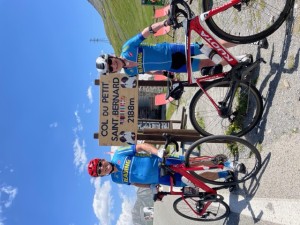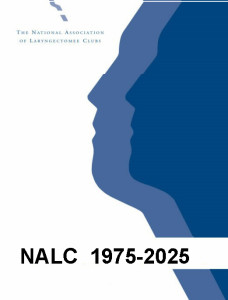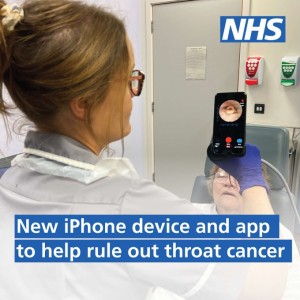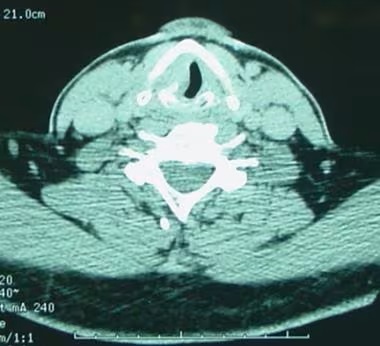A laryngectomy is a major surgery. It takes many months for recovery and a future life with serious challenges – finding a new way of speaking and managing a neck stoma.
Many laryngectomees benefit from a clear goal such as getting back to work or developing the ability to continue key aspects of their life despite the changes after surgery. Fred’s passion was cycling, here is how he coped as he worked to return to what was his “normal”

When I was initially diagnosed with cancer of the larynx I was treated with Radiotherapy at the Royal Berks hospital. I decided that once I was recovered, I would try climbing Mount Teide in Tenerife. It proved to be quite a challenge, but I did achieve the goal.
Unfortunately, the cancer returned and the team at the Royal Berks referred me to Professor Winter at the Churchill in Oxford. Professor Winter asked what was important to me. Amongst other things I talked about my passion for cycling. He thought it would be worthwhile attempting a partial laryngectomy which, if successful, would enable me to return to cycling at a similar level to before. A full laryngectomy would affect the volume of air I could process and my diaphragm would be weaker so power to the legs would be reduced. That would particularly affect me going uphill.
In the end, the radiotherapy had done so much damage to the tissue that the partial laryngectomy kept leaking. Eventually, we opted for a full laryngectomy.
It took quite a while to recover from the surgery, I had been in and out of hospital for three months. When I first got on the bike, on my turbo trainer, the amount of power I could produce was pitiful. I kept persevering and power output gradually increased. Some cycling buddies accompanied me on my first ventures out on the road. It was just so good to be out in the fresh air riding again!
As I got stronger, I started riding with my cycling club with the retired riders group. I could generally keep up on the flat, but not on the hills, I still struggle on the hills. We regroup at the top of a climb which allows stragglers to catch up.
I had an opportunity to go to Italy on an organised and supported trip to climb the mountains which the Giro d’italia often climbs in northern Italy. I just love the mountains, nothing quite like it, the challenge, the amazing views, the sense of achievement at the summit and of course the reward of the descent. We climbed the iconic climbs of the Passo dell Stelvio at 2758m the second highest paved pass in the alps, the Gavia 2621m, Col Du Petit Saint Bernard, 2188m etc.
It is important to recognise your limits when you have had a laryngectomy. The other riders did two big climbs a day, to my one. They will be riding hard but within themselves whilst I was at my maximum. That takes more recovery, which is why I only did 1 climb a day. That was a very rewarding holiday.
Since then, I have been on two trips to Puerto Polliensa in Majorca with my cycling club, Reading CC. It is quite a mixed ability group but there were enough of us so that there was a suitable group to ride with each day. On the flat it was fine, but as usual I couldn’t keep up on the climbs. I used to worry about spoiling my clubmates’ rides by them having to wait at the top of a climb, or when I have to stop to clear my stoma. In fact, they are very supportive and appreciative of the fact that I am still riding.
It’s not all a bed of roses, when I’m cycling I find it difficult to talk, I can hear the chatter in the peloton which I can’t join in. At the lunch stop It’s not easy to talk whilst eating ( I did have a pharyngeal pouch which may be the reason) and it takes time to recover.
I try and live the same life as I did before cancer, go out socially, take part in my chosen sport of cycling and talk to anyone who wants to know about living with a laryngectomy. When I meet new people, I generally explain about my need to periodically clear my secretions, when cycling, I have to do this at the side of the road, so they know what to expect. It is no good being embarrassed about our disability or its side effects. We have to live and enjoy life to the full.




